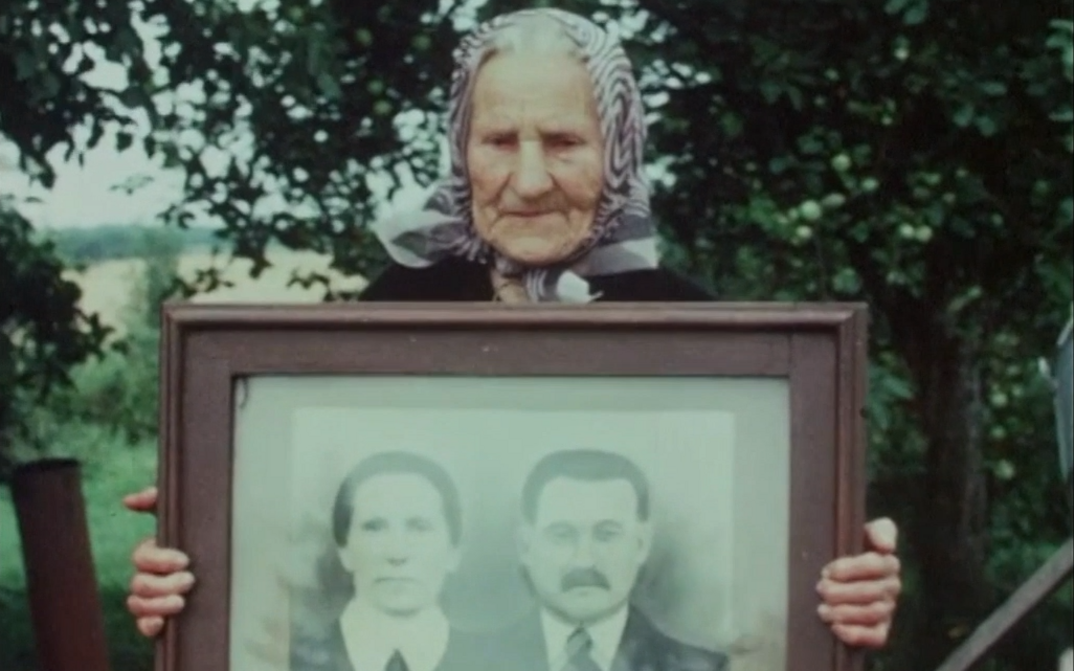"Memories": Going Home

Wed 18.01.
20:45
Director
Adolfas Mekas, Pola Chapelle
USA / 1971
61 min.
/ 16 mm
/ Original version
Program
Memories
Cinema
Arsenal 1
zu den Ticketszu dem KalenderIntroduction by the curators and ; Conversation "I’m trying to remember" with Christoph Dieckmann (Historian), Ina Navazelskis (Journalist) and Claudia Sinnig (Literature scholar)
"Today our train pulled into Dirschau, near Danzig. This is our eighth day on the road. I am neither a soldier nor a partisan. I am neither physically nor mentally fit for such life. I am a poet. Let the big countries fight. Lithuania is small. Throughout our entire history the big powers have been marching over our heads. lf you resist or aren’t careful—you’ll be ground to dust between the wheels of East and West. The only thing we can do, we, the small ones, is try to survive, somehow. That’s why, if luck stays with us, we are on our way to the University of Vienna. I do not want any part of this war. This war is not mine."
This is how the diary I Had Nowhere to Go / Ich hatte keinen Ort begins on July 19, 1944 by Jonas Mekas, who fled Lithuania with his younger brother Adolfas.
Born in Lithuania in 1922, Mekas experienced how the Baltic country was caught between the fronts of National Socialism and Stalinism during his youth. He was forced to leave his homeland in 1944 and vividly describes his escape and imprisonment, life in a labor camp, and in various Displaced Persons Camps, in his diaries. These bear unique witness to the post-war years in Germany and to the life of the Lithuanian diaspora in New York, where he emigrated in 1949 with his younger brother Adolfas. Mekas became an influential networker between various international avant-garde movements.
The lost homeland and childhood remained a point of reference in Mekas' work. The constant attempts to remember the irretrievable first years of life and at the same time to be able to forget the atrocities of the 20th century urge him to capture the moments of happiness of the present that are in danger of being forgotten.
In a way, Mekas’ films are his memories. He is drawn to record celebrations, gatherings of friends, and the joyous occasions of family life, but his films are far more than a catalogue of events. They are alive with memory. The dark moments are perceived as absences. They compel us to look for what isn’t seen. Viewed another way, the images that are seen trace the outline of those that are not.
With the film ORAL HISTORY: JONAS MEKAS as the backdrop, the panel discussion with Ina Navazelskis, the historian Christoph Dieckmann and literary scholar Claudia Sinnig will address the question of what it meant to be a contemporary witness for an author who turned autobiographical writing and filming into his form of artistic expression.
Adolfas Mekas makes another attempt to remember the lost past, childhood and homeland with his film GOING HOME (Adolfas Mekas, Pola Chapelle, USA 1971, 61 minutes) - made during the joint trip to Lithuania with Jonas Mekas.
GOING HOME provides a particular reflection on exile and what Salman Rushdie has called “a dream of glorious return” (Rushdie, 2000). The film, which marks the return to Lithuania by Jonas and Adolfas Mekas after an absence of 27 years since going into exile, follows Mekas as he journeys through the Lithuanian hinterland of his childhood, searching for and reconnecting with family and friends. Here, one sees a moving realisation of the 'fantasy of return', a dominate theme in exilic literature and cinema. The themes of personal memory relate to GOING HOME though the voice-over narration which was taken from Mekas' childhood diaries. This device creates a temporal link between the states of pre-exile, exile and the restoration of return.
Program:
Introduction: Christoph Gnädig, Christian Hiller, Anne König
Reading: Heike Geißler and Goda Palekaitė, from the diaries of Jonas and Adolfas Mekas
Conversation „I’m trying to remember“ with Christoph Dieckmann (Historian), Ina Navazelskis
(Journalist) and Claudia Sinnig (Literature scholar)
Followed by: Going Home Adolfas Mekas, Pola Chapelle USA 1971 Original version 61 minutes